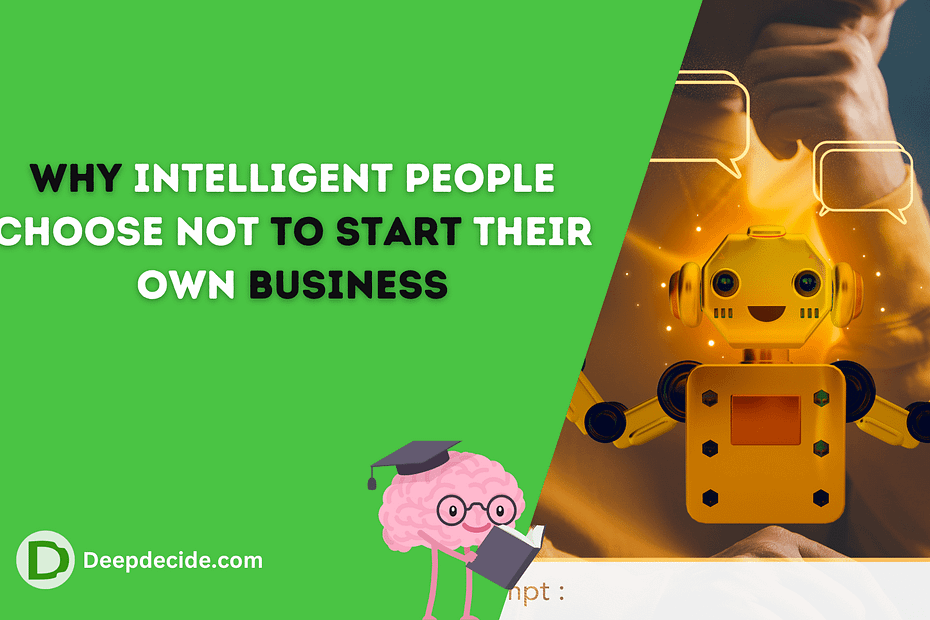Last Updated on: 27th November 2023, 08:58 pm
Owning a business or entrepreneurship is often touted as the pinnacle of professional achievement, boasting the allure of financial freedom and autonomy. Yet, not every highly intelligent individual aspires to be a business owner.
Preference for Stability
Perhaps the most common reason intelligent people give for not starting a business is the preference for stability and security.
Establishing a business involves substantial financial risk and often leads to unpredictable income streams.
High-intelligence individuals often prioritize stable employment, appreciating the benefits of a steady paycheck and a predetermined career path.
Fear of Failure
Even the brightest minds harbor fears of failure. Starting a business implies the potential for both high success and cataclysmic failure.
For some intelligent people, the fear of experiencing the lows outweighs the exhilaration of potential highs, dissuading them from venturing into the uncertain terrain of entrepreneurship.
Valuing Specialization
Intelligent people often value deep knowledge and specialization over the broad-based skills required by entrepreneurship.
They prefer to be experts and thought leaders in a specific field rather than generalists wearing multiple hats, as is often necessary when running a business.
Striving for Work-Life Balance
Running a business often requires considerable sacrifice and commitment, potentially intruding on personal life and work-life balance.
For many intelligent individuals, maintaining a balance between their work and personal life is crucial, making the idea of starting a business less appealing.
Satisfied with Current Job
Many highly intelligent individuals find immense satisfaction in their current jobs. They may enjoy the work they do, the people they work with, or the company culture itself.
For these individuals, their professional fulfilment often takes precedence over the allure of entrepreneurship.
Not Being Motivated by Wealth
Contrary to popular belief, not all intelligent individuals are motivated by wealth. They might not perceive financial gain as the ultimate measure of success and may find their rewards in intellectual stimulation, job satisfaction, and the impact they create within their chosen field.
Lack of Business Acumen
Entrepreneurship requires a distinct skill set, blending creativity, leadership, risk-taking, and business acumen. While some intelligent individuals may excel academically or technically, they might lack the business acumen or have no interest in developing the necessary entrepreneurial skills.
Conclusion
The decision not to start a business is not always indicative of a lack of ambition or fear. Often, these choices are founded in rational and introspective reasoning by intelligent people who understand their desires and values. Given the commitment and sacrifice involved in entrepreneurship, their choice might be the most intelligent one for them.



